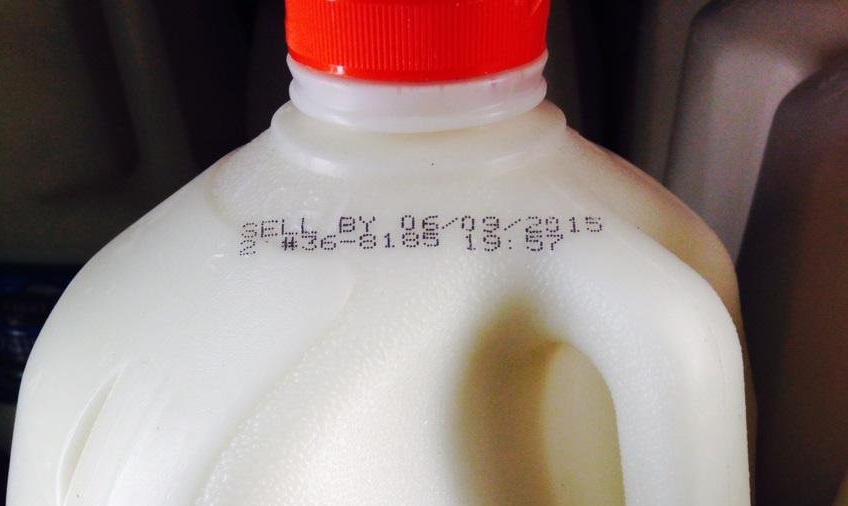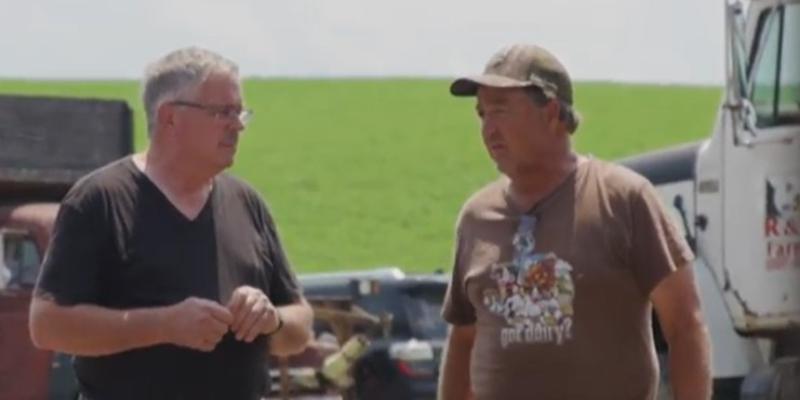-
January 27, 2022

- • Featured • Announcements
Look for the #36 on Milk Cartons to Support NY Family Dairy Farms
New York’s dairy industry has strong roots in Metro NY and across upstate. Not just in the fields where farmers grow corn, soybeans, and plant cover crops to protect our lakes and rivers.
 Milk storage tanks await pick-up at Dykeman Farm. Milk is storage here and then transported to the processing plant.
Milk storage tanks await pick-up at Dykeman Farm. Milk is storage here and then transported to the processing plant.
We work day and night to keep the state’s food supply chain moving, providing nutritious milk and food to families in Niagara Falls, northeast to Plattsburgh, and south to the tip of Long Island. Essential workers at every level of the food supply chain play an important role in feeding New Yorkers.
Essential workers include the skilled farmworkers who work alongside farmers every day to care for the animals, the crops, and each other. And the truckers, transporting fresh produce, milk, and other dairy products from upstate and Long Island farms to the five boroughs and beyond.
The bankers and insurers who help farmers make large investments to purchase new equipment, install the latest milking parlor technology and barn cooling systems, and build new housing for employees.
As farmers, we could not be successful without the hoof trimmers, veterinarians, and our partners at the state departments of Agriculture & Markets and Department of Environmental Conservation, along with local soil and water conservation districts – all of which support the health and safety of our teams, our cows, and our land.
The food pantries, who continue to work with farmers and other volunteers to get healthy meals to underserved areas of our state, including areas throughout NYC.
They all play an important role in ensuring families are fed.
On our farm northwest of the Hudson Valley, we have 35 employees, both full and part-time who are critical to the success of our business. We milk about 1,600 cows, and rent and farm nearly 4,500 acres in our community. A dozen of our employees have been with us for over 10 years, and a few of them close to 20 years. One employee has been working with us nearly two decades and I’d wager he’s the best calf raiser in the Northeast.
We provide insurance, rent-free housing, retirement plan options, and flexible schedules. We make sure everyone has a work-life balance, so employees can spend time with family, see their kid’s baseball games, or play in their own soccer tournaments with coworkers.
In November, we hosted a Dairy Roundtable with the Northeast Dairy Producers Association, which was attended by numerous state legislators including Agriculture Committee Chairs Assemblymember Lupardo and Senator Hinchey’s Chief of Staff, as well as Senator Borrello and Assemblymember Tague, and Department of Agriculture & Markets Commissioner Richard Ball. We discussed labor challenges, unpredictable weather, increasing costs of feed and gasoline, and how dairy farmers are price takers and have no control over the price of milk.
Many of the key players critical to the stability of NY’s supply chain were present, and industry obstacles were addressed including potential solutions to ongoing challenges. We discussed the need to change the amount farmers are paid per hundred pounds of milk, which hasn’t changed in over 40 years. Farmers talked about staffing issues for trucking companies, which are needed to haul milk to processors and grocery stores within a very specific window of time to ensure milk remains chilled and fresh for consumers. And we encouraged attendees to visit farms, speak with farm families, employees, and hear for themselves the love for farming that these essential workers have.
So, what can New Yorkers do to support the sustainability of local farms? In the heart of Queens, NY there’s an historic 47-acre farm called the Queens County Farm Museum. Plan time to visit, ask questions, and learn about the diversity and complexity of agriculture in NYS. You’ll get the chance to engage in hands-on activities and learn about the importance of locally produced milk and food.
We are learning that we need to provide more educational opportunities and ways to communicate with consumers. The Queens County Farm Museum, as well as the Great New York State Fair, are two great vehicles for farmers and consumers to connect.

And lastly, when you buy milk at the bodega, farmers market, or local grocery store, look for the barcode beginning with #36 on the container. This means it was made using milk from NY family dairy farms. The numbers that follow are the plant code, indicating the location where that product was processed and packaged.
Your support matters and allows us to continue to provide nutritious milk and food to neighbors and families in every corner of the state.
Ray Dykeman is a member of the New York Animal Agriculture Coalition – a farmer founded and funded not-for-profit organization that strives to enhance the public’s understanding of and appreciation for animal agriculture and modern farm practices. He is owner and partner of Dykeman and Sons Inc., a family dairy farm in Fultonville, Montgomery County in Upstate New York.
